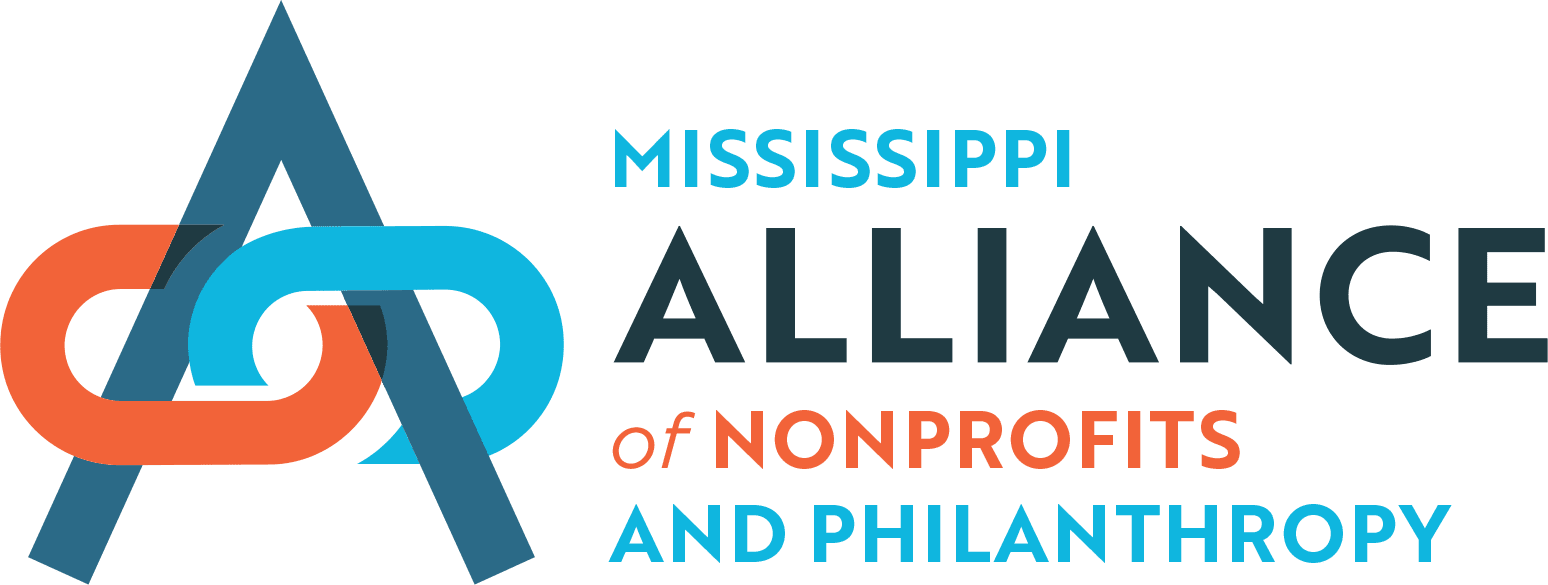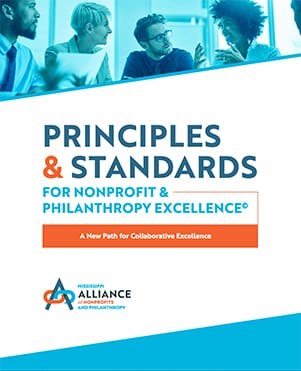Principles & Standards
For Nonprofit & Philanthropy Excellence
The 12 Accountability Principles
3. Financial Management
About
Functions
1. Annually, the board should review and approve a detailed written budget of revenues and expenditures, identifying and explaining any significant variance and gain a sufficient understanding of the assumptions behind the budget’s development when doing so. FS
2. Individuals responsible for an organization’s financial reporting should prepare and present to the board consistent, timely and accurate financial reports at least bimonthly, with comparisons to the organization’s budget. Nonprofits and philanthropies should provide financial literacy training to its board of directors at least annually.
3. Board members and key staff should clearly understand how to read and interpret financial statements, including the limits on the use of restricted funds in nonprofit organizations and the role of debt.
4. The board treasurer should take a leadership role in helping the board understand its duties with regard to financial management. The treasurer also should foster board awareness of the organization’s current financial condition, forecasted revenue and need to make timely adjustments in expenditures to keep the organization healthy.
5. Nonprofits and philanthropies should ensure separation of financial duties to serve as a checks and balances system to prevent theft, fraud or inaccurate reporting to the greatest extent possible. This system of internal controls should be formally adopted by the board and appropriate to the size of the organization’s financial and human resources. FS
6. Nonprofits and philanthropies should adopt written financial procedures and have appropriate financial management software to record revenues and govern major expenses and use of assets, including FS:
• cash and in-kind contributions,
• payroll,
• leases,
• expense reimbursements,
• travel,
• contracts,
• consultants,
• investments, and
• use of debt.
7. Nonprofits and philanthropies accepting funds from government entities should be conscientious in negotiating contract terms to ensure that payment levels, conditions and reporting requirements are consistent with the mission of the organization and the interest of the people being served.
8. Boards of directors of charitable organizations should strictly prohibit financial loans to board members, the executive director, and other staff. FS
9. Nonprofits and philanthropies should plan for a balanced budget. In the event that a budget deficit occurs, the board should be made aware of this expected outcome and should participate fully in determining a plan to restore the budget to a balanced state.
10. Nonprofits and philanthropies, with board approval and full knowledge of its legal obligations and liabilities, may undertake responsibility of fiscal sponsorship for another organization.
Compliance
11. Nonprofits and philanthropies must comply with all financial regulations, such as withholding and payment of federal, state, and Social Security taxes, and the management and use of restricted funds. FS
MS IRS
12. Nonprofits and philanthropies should complete the annual IRS reports (Form 990, 990EZ, 990N and appropriate schedules) per IRS requirements in a timely, accurate manner and include specific information about the relevant year’s activities and outcomes. The organization’s board should be provided with a copy of the completed IRS Form 990. FS IRS
13. If an organization’s contributed income for the previous fiscal year exceeds the Mississippi Secretary of State’s revenue threshold, it must ensure that its financial statements are audited, certified, and prepared in accordance with sound accounting practices by a certified public accountant. MS
14. Nonprofits and philanthropies should complete the annual Unified Registration Statement (URS) and Financial Statement (FS) as required by the Mississippi Secretary of State in a timely, accurate manner. FS MS
15. Nonprofits and philanthropies should have a system in place, including a whistleblower policy, that allows individuals to report financial misconduct, without consequence for doing so.
16. Nonprofits and philanthropies have a responsibility to ensure that assets are used solely for the benefit of the organization and not for personal or other gains. They should have a clear conflict of interest policy that is annually signed by board members and actively enforced by the officers of the board. FS IRS
17. Boards should use comparable market data to set compensation for the organization’s executive director and stay informed of compensation levels for other key personnel. The IRS rulings on excessive compensation should be adhered to in all compensations.
18. Nonprofits and philanthropies have a legal and ethical obligation to expend funds responsibly and to ensure that funds are dispensed according to the donors’ wishes, requirements, and restrictions are maintained. MS IRS
19. Nonprofit and charitable organizations must openly communicate the annual reporting information contained in its IRS Form 990 for the previous three years to make available to those who request it. Organizations should make this information available on its website. IRS
Sustainability
20. Nonprofits and philanthropies should periodically assess their risks, take appropriate actions to minimize these risks and purchase appropriate types and levels of insurance to wisely manage their liabilities.
21. Nonprofit and philanthropic organizations should secure appropriate levels of funding to carry out their missions and activities and, when possible, diversify their revenue sources to avoid being dependent on a single funding type.
22. Nonprofits and philanthropies should work diligently to avoid recurring deficits and aim towards building up sufficient operating reserves.

